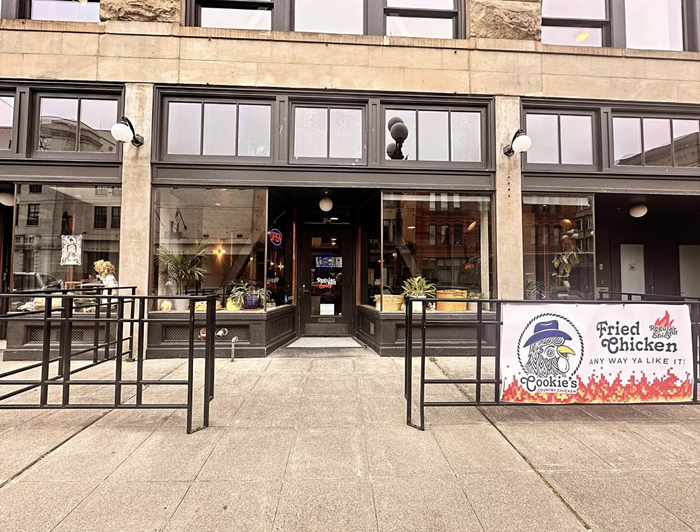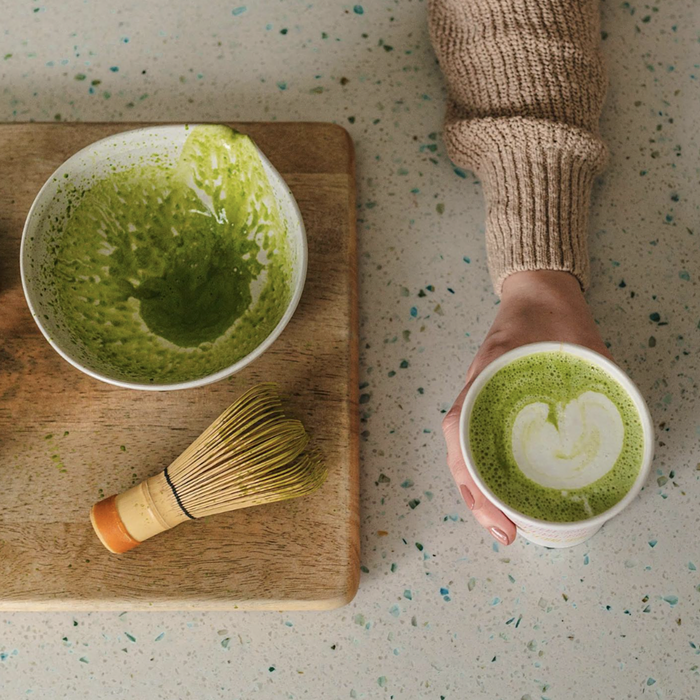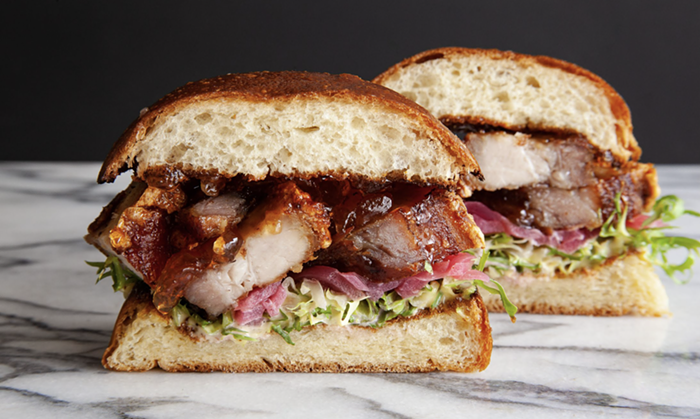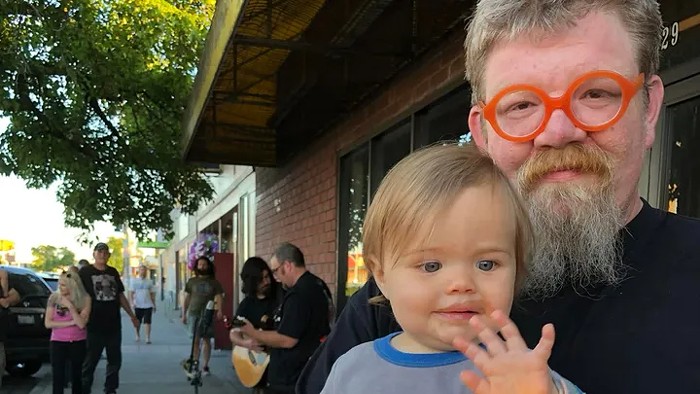The deal was announced with a 30-second television ad during the Super Bowl. The first 25 seconds of the ad feature a trio of gangster types seated in a diner (shades of the Sopranos finale), where their "business discussion" is repeatedly interrupted by a waitress spraying whipped cream onto their waffles. Then comes the twist ending, delivered via voice-over: "Isn't it time for a serious breakfast? This Tuesday from 6:00 a.m. to 2:00 p.m., Denny's is giving a free Grand Slam to everyone in America. Seriously."
To define our terms: The "Super Bowl" is an annual television event in which a decisive game of American football is wrapped in the year's highest-profile commercials. (An estimated 98 million people viewed the 43rd Super Bowl.) The "Grand Slam" is the best-selling item of the great American restaurant chain Denny's: two eggs, two pancakes, two bacon strips, and two sausage links for $5.99—except on Tuesday, February 3, 2009, between 6:00 a.m. and 2:00 p.m., when a Grand Slam would cost anyone in America zero dollars and zero cents. America, as defined by Denny's, is anywhere there's a Denny's.
"This free offer is our way of reacquainting America with Denny's real breakfast and with the Denny's brand," said Denny's CEO Nelson Marchioli in a statement. Industry experts estimated the cost of the promotion—from the Super Bowl ad buy to the half-day food giveaway—at about $5 million. This multimillion-dollar gift to America seemed designed to rescue Denny's from the recession- driven slump in "casual dining," to recast the restaurant as a sit-down sibling of the apparently recession-proof McDonald's, and to present an attractively thrifty alternative to Applebee's etc.
On the morning of the Great Grand-Slam Giveaway, I awoke to news reports about lines outside Denny's across the country: Orlando, Kalamazoo, Reno. Outside Seattle's last remaining Denny's—in Sodo, just across six lanes of traffic from the pink Elephant Car Wash along an industrial run of Fourth Avenue South—the line stretched out the front door and across the parking lot, a growing mob of all sorts of people united in anticipation underneath the yellow Denny's-sign sun. In line behind me at 11:30 a.m.: a gaggle of high-school girls fussing with cell phones and lazily grousing about the wait. ("I don't wait in lines," I heard one girl say.) Still, their devotion to free food was made plain as they rattled off the places that give you free stuff on your birthday: "Baskin- Robbins, Dairy Queen, Denny's..." In line in front of me: a twentysomething guy and girl wearing backpacks I was ready to chalk up to urban sportiness until I heard them speaking. "The food kitchen would probably be just as fast," said the guy. "And the bathrooms just as clean," added the girl.
Flowing past slowly but steadily was a stream of sated customers, freshly stuffed with free Grand Slams and staggering out full and happy and lightly dazzled by their good fortune. "I didn't have to pay a thing, man!" came a shout from within a group of bleary-eyed guys in sports jerseys, passing the just-parked car with the boomin' system spitting out another batch of high-school lunch- breakers to join the line. Close to the entryway, a fellow patron—unidentifiably punk or homeless or both or neither—smoked marijuana discreetly. Once inside, the male half of the backpacked couple in front of me asked if I wanted to share a table.
Before long, we were seated in a just- vacated, still-glistening-with-rag-water booth by a busboy who gave us the lowdown: Each customer was entitled to one free Grand Slam, served as is (eggs scrambled, no substitutions). A harried-but-contained waitress took our order—three Grand Slams, one coffee, two waters—then darted off. The whole place buzzed with frantic busyness: line cooks stacking hot Grand Slams three high under heat lamps, servers speed-walking to and fro, and a line of customers actually, continuously out the door.
While we waited for our food, the couple shared their knowledge about the hierarchy of chain-diner food (Denny's is cheaper than IHOP, but Federal Way's Village Inn is cheaper than both). When our food arrived, I gave them my bacon and sausage, and gave up my qualms about eating eggs and pancakes that had touched meat. (Such vegetarian fussiness is one of the first casualties of a global economic downturn.) The eggs and pancakes were perfectly good, with the eggs cooked to a just-right medium (not runny, not dry) and the pancakes exemplary models of the form. The only reason to eat pancakes made by someone else is the hope that their pancakes will be better than yours, and Denny's kept up its end of the bargain.
After paying the waitress for my coffee (and tipping her 500 percent—there should be medals for such service), I found myself back on the pavement with my dining partners, our systems singing from the 795-calorie jolt of fat, carbs, and protein that fostered a feeling close to complete (if temporary) contentment. The unique glories of the surprise free meal have been the subject of everything from comics (Lynda Barry's classic strip about the power of Burger Barn leftovers) to literature (the stunning finale of John Steinbeck's The Grapes of Wrath). Heading out of Denny's, I was reminded why: A good free meal can make anyone feel like a lottery winner.
The Great Grand-Slam Giveaway may not have hit its target market—the would-be Applebee's customer, tightening the proverbial if not the actual belt—but it created exorbitant goodwill among high schoolers, stoners, and the homeless (and, probably especially, combinations thereof). "How was it?" shouted a man near the back of the line to his friend, who'd just emerged from his feeding. The friend shouted back, "It was delicious!" ![]()



















